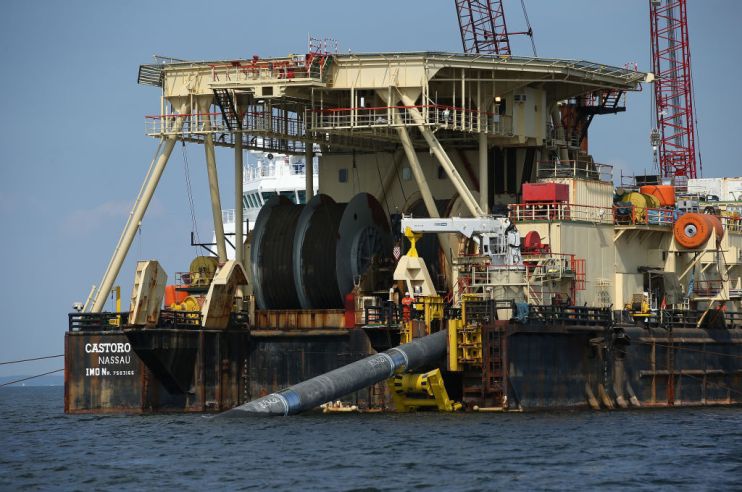Gazprom scraps plans to reopen Nord Stream pipeline

Gazprom has scrapped plans to resume flows through a key pipeline into Germany, raising the prospect of a winter without Russian gas to meet Europe’s energy needs.
The Kremlin-backed gas giant said it discovered a fault in the Nord Stream 1 pipeline during three days of maintenance.
The pipeline runs under the Baltic Sea to supply Germany and its European allies, and was due to resume operating on Saturday morning.
However, Gazprom revealed on Friday it could not safely restart deliveries until it had fixed an oil leak found in a vital pipeline turbine.
It did not give a new timeframe for when it would reopen.
It latest response follows the G7 confirming plans to bring in a cap on oil prices – to slash revenues funding Russia’s invasion of Ukraine.
Nord Stream 1 was already operating at reduced capacity, with 20 per cent flows, prior to maintenance.
The Kremlin has blamed sanctions imposed by the West after Russia invaded Ukraine, for disrupting routine operations and maintenance of Nord Stream 1.
The West has consistently argued maintenance on the pipeline is a pretext and Russia is using gas as an economic weapon to retaliate.
Wholesale gas prices have rocketed 400 per cent over the past 12 months, hurting European industry and households.
Germany races to top up gas ahead of winter
Gas prices were already elevated due to recovering demand after the pandemic, and then spiked further following the invasion of Ukraine.
Following the announcement, Germany’s network regulator argued the country was more ready to cope with a disruption to Russian supplies but households and companies had to cut consumption.
Klaus Mueller, president of the Bundesnetzagentur, said: “It’s good that Germany is now better prepared, but now it’s down to each and everyone,”
Germany has been scrambling to secure supplies in recent months, and introduced energy saving measures across public buildings in major cities.
The country’s storage tanks are now nearly 85 per cent full, on track to hit an October target earlier than planned.
The country’s government is targeting 95 per cent by a November, which would still be tough unless companies and households used less fuel.
The EU as a whole has exceeded its target for storage to be 80 per cent full by October, when heating usage picks up.